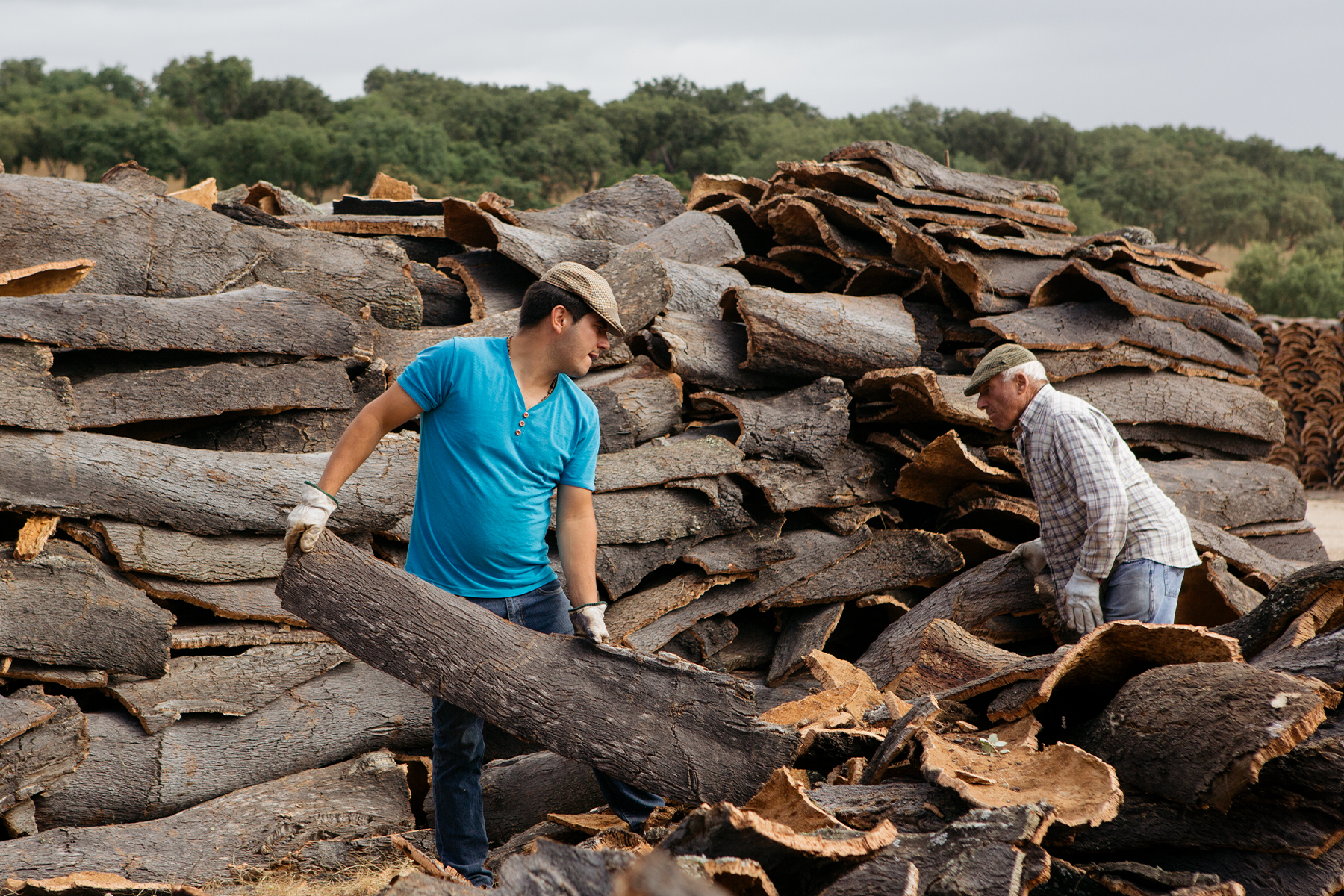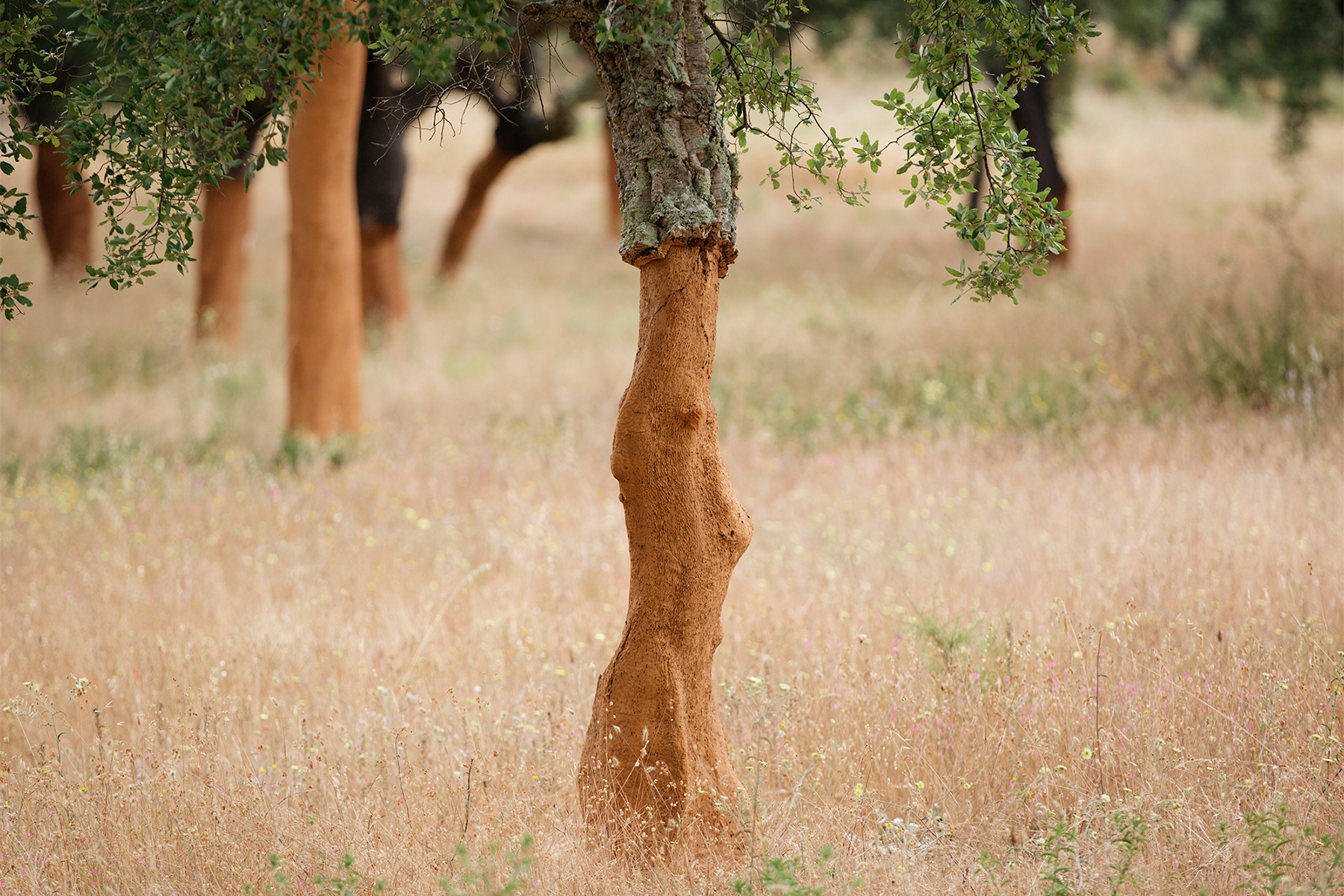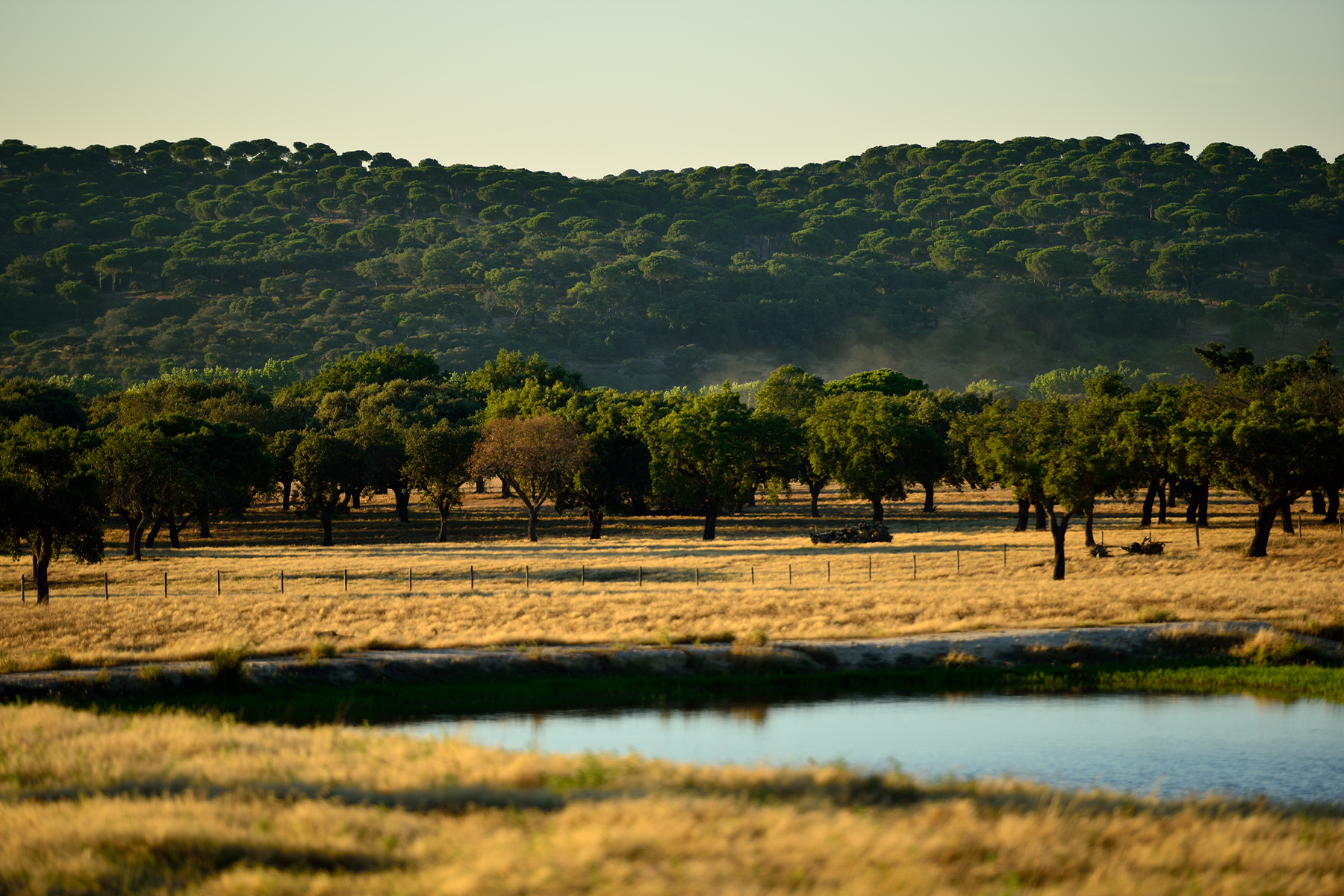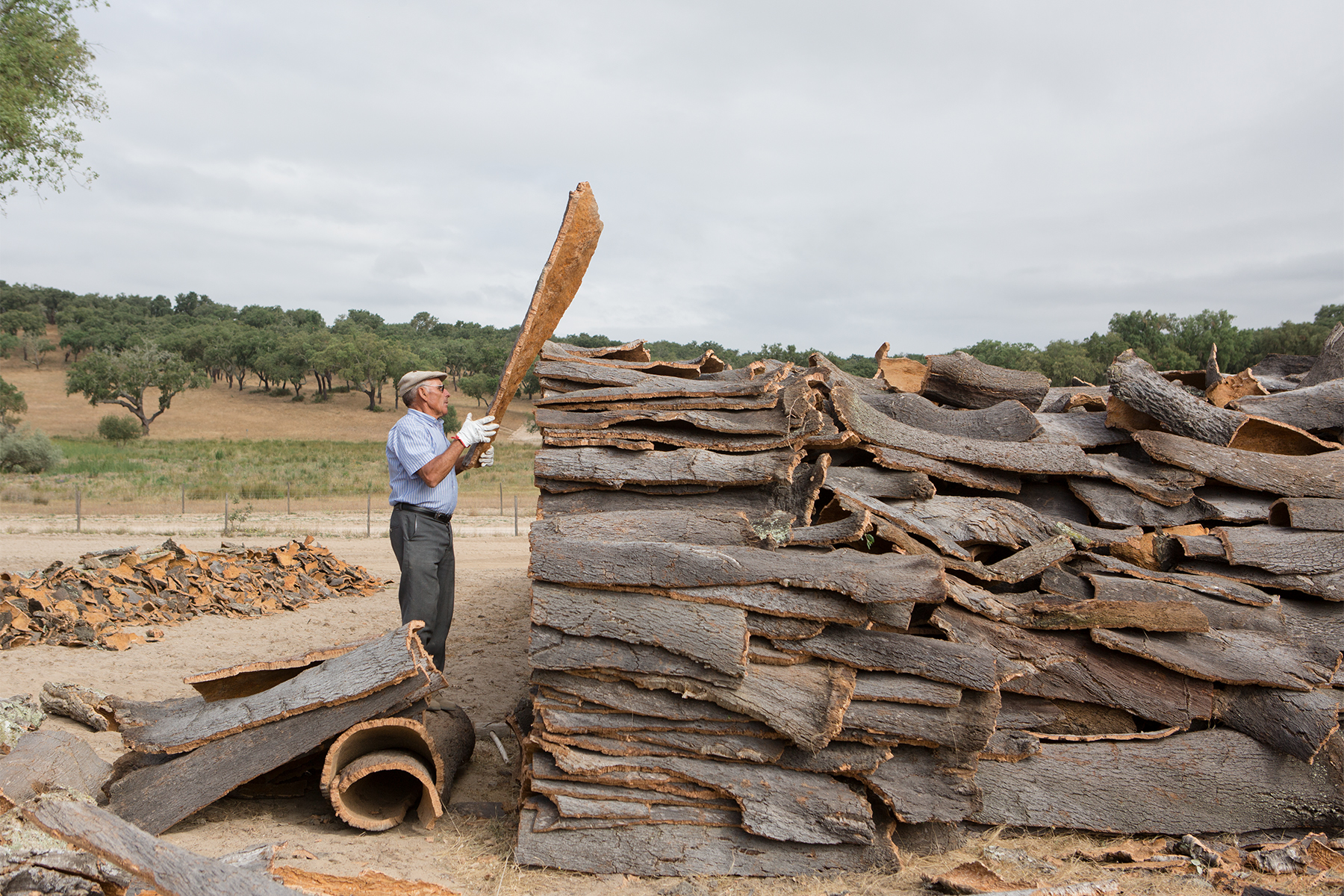Cork is a natural material that can be extracted from the bark of cork oaks without causing damage to the tree, which avoids phenomena like deforestation or harm to ecosystems. Cork extraction has little impact on the environment, and its life cycle, from cork oak to disposal, is deeply sustainable.
The cork production process consists of several steps, all with a low environmental impact: the bark is extracted from cork oaks according to the guidelines of strict specifications without damaging the tree, which continues to grow and produce new bark. The extracted bark is sun-dried to remove moisture and then ground into granular form downstream of the cork production process, without the use of chemical additives or synthetic treatments.
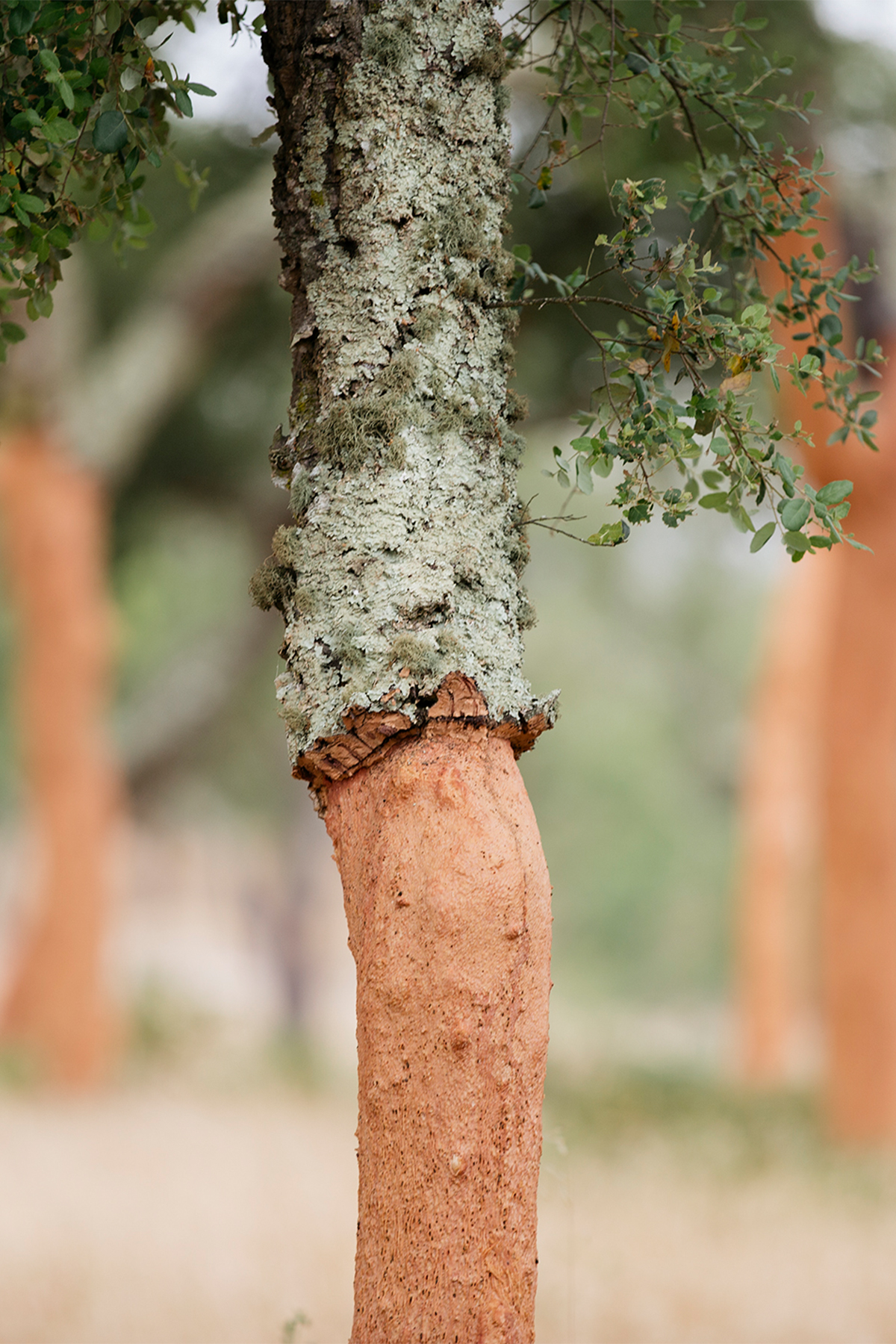
 Sustainable
Sustainable Acoustic
Acoustic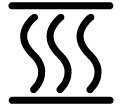 Thermal insulation
Thermal insulation Fire retardant
Fire retardant Hypoallergenic
Hypoallergenic Durable
Durable